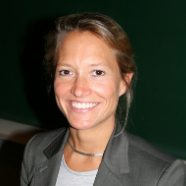
I completed my PhD in Neuroscience in 2006 at the Université catholique Louvain (UCL, Belgium) under the supervision of Prof. E. Olivier. My PhD training also included a 2-year fellowship (2002-2003) at the National Institute of Neurological Disorders and Stroke (NIH, Bethesda, USA) with Prof. L.G. Cohen (PhD co-supervisor). At that time, I characterized interactions occurring between motor areas of both hemispheres using transcranial magnetic stimulation (TMS) in healthy subjects and in patients suffering from a unilateral stroke. One primary finding was the occurrence of an abnormally strong interhemispheric inhibition of the lesioned hemisphere in these patients, altering paretic hand movements
After my PhD, I joined the lab of Prof. R.B. Ivry (UC Berkeley, USA) as a BAEF and Fulbright postdoctoral scholar, with the goal to further my understanding of the role of inhibitory processes in the control of hand movements (2006-2008). I then continued this research line at the UCL on a FNRS postdoctoral position and worked for a year (2008-2009) with Prof. M. Rushworth at the University of Oxford (UK). I now hold a professorship at the UCL (since 2010, now tenured), where I set up my own lab (Cognition and Actions Lab) in the Institute of Neurosciences (IoNS). Research in my lab broadly explores a range of questions pertaining to the cognitive neuroscience of human behavior. We conduct experiments to explore the processes underlying movement preparation in neurologically healthy and impaired individuals, using a variety of techniques including mostly TMS and electroencephalography (EEG).
My research has contributed to the understanding of how the human brain controls voluntary behaviour, with a particular emphasis on the motor system, in view of its documented position at the junction of various processes guiding action preparation. The identification of motor inhibitory processes and their role in regulating the preparation of actions has represented a central theme in my work since the beginning of my career (reviewed in Duque et al. Trends in Neurosciences. 2017).
Besides, other projects in the lab aim at better understanding the role of motor neural structures (e.g., the primary motor cortex, the pre-supplementary motor area, the basal ganglia) in decision-making processes. Our experiments incorporate a combination of behavioral, perceptual and cognitive tasks with both healthy human participants and clinical populations such as patients diagnosed with Parkinson’s disease or suffering from an addiction.
Transcranial Magnetic Stimulation (TMS) has represented a central tool in my work, especially when exploited to obtain motor-evoked potentials (MEPs) as dependent measures of corticospinal excitability in healthy subjects and patients (reviewed in Bestmann and Duque, The Neuroscientist 2016). Several ongoing projects in the lab aim at developing and testing new TMS methods with the goal to enhance MEP approaches used to track changes in the excitability of the motor system in humans.